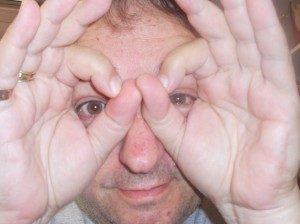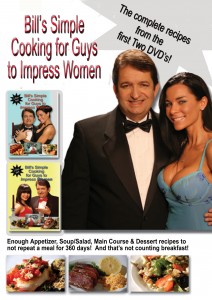One of the coolest things about staying with my daughter and granddaughter is the opportunity to get to help, a bit, with Kaia’s academics. Since she is only in kindergarten, I didn’t expect that to be a possibility. But kindergarten has come such a long way from the days when I was being taught my colors by pointing to large, bright circles on a cork board, smearing colored laundry starch on a large piece of  construction paper and calling it finger-painting and being taught to tell the difference between triceratops and tyrannosaurus dung, lest I be gobbled up on the walk home.
construction paper and calling it finger-painting and being taught to tell the difference between triceratops and tyrannosaurus dung, lest I be gobbled up on the walk home.
She is being taught math and spelling and being given homework four days a week. Heck, I didn’t even get homework until I was in the fourth grade!
When I first arrived, I learned of the weekly spelling test and began working on her words with her each afternoon. My daughter told me that Kaia had been averaging one correct word—out of five, plus a bonus, surprise word—each week. I began with the classic technique of helping her sound out the words. Yet, in speaking with my friend, Nancy, who teaches kindergarten, I learned that in today’s parlance, the words they are giving kindergartners are called high-frequency words. I recently completed a DVD for her in which, she reminded me, we did a segment on high-frequency words.
Nancy told me that many of these common words are leftovers from old English and, over the years, their pronunciation has changed. Many of them are still spelled the way they were in the past, but their pronunciation has changed, for the most part, due to laziness in speaking. She offered me ideas on how to make little songs about particular words or suggested I think of different ways to remind her of how the word is spelled. She also said that, with many, the only way to learn them is to repeat them.
So, I began that first week with her list. I made up a song about the word Little. I made a joke about the word We. And the other three were pretty easy to teach by sounding them out. She came home that Friday and immediately took out her spelling test. Out of the five words plus bonus, she’d gotten five correct! I was so happy!!
So we began our weekly spelling practice. We’d be in the car or doing the dishes and I’d ask her to spell words. For the most part, she’d give it a try. Sometimes she’d be a bit tired and it would take some coaxing on my part, but she’d end up going through the list. I’d make sure she spelled each word correctly before letting her go on with the afternoon.
The next Monday she came home with her list and on the back was a list of Ms. Haugen’s 100% Spellers and Kaia’s name was listed first! I immediately sent a text to Nancy, informing her of our success. Then we jumped right in on the new list for the week.
The next week Kaia got all six words right! It was then that she told me that “some other girls” had been teasing her because she usually only got one word right. From then on, Kaia worked diligently on her spelling.
 On the simple words, I had her sound them out. On the more difficult words, I tried to think up ways she could remember them. On the word “Look,” she had trouble because the double-o sounds like the letter “u.” So I began putting my hands up to my eyes, making two circles, to show her that “look” had two eyes in the middle. She was still having trouble with it each time we came to it in our practice sessions. Each time she’d try and spell it, I’d stand there with my hands to my face, making the circles, and she’d glance up and see me and laugh; then spell it correctly.
On the simple words, I had her sound them out. On the more difficult words, I tried to think up ways she could remember them. On the word “Look,” she had trouble because the double-o sounds like the letter “u.” So I began putting my hands up to my eyes, making two circles, to show her that “look” had two eyes in the middle. She was still having trouble with it each time we came to it in our practice sessions. Each time she’d try and spell it, I’d stand there with my hands to my face, making the circles, and she’d glance up and see me and laugh; then spell it correctly.
That Friday, my daughter picked her up from school. I called to see how the spelling test went and Wendy happily told me that Kaia had gotten all six correct again. But Kaia also told her that she almost used a “u” for Look until she “remembered Poppie making circles to her…”
This week, the two most difficult words for her were “what” and “are.” I worked with her a bunch on these two. First, you have to remember that, in the word what, the w and h make the whuh sound. Second, the a sounds like an uh sound, which is a short u. For are, it sounds like the letter r, and that’s it.
Friday morning, as she was putting on her shoes for the day, and I asked her to spell her words. She slumped back on the couch and said, “I will maybe only get three right…” My heart immediately sank. I knew she’d given up on the words what and are as being too hard.
 So, in the car on the ten minute ride to school, I talked with her about giving up before she even tried and about trying your best and how you’ll never know if you can do something unless you first give it a try. I gave her a hug at the classroom door and wished her a good day.
So, in the car on the ten minute ride to school, I talked with her about giving up before she even tried and about trying your best and how you’ll never know if you can do something unless you first give it a try. I gave her a hug at the classroom door and wished her a good day.
When I picked her up at Noon, she ran to me with a big smile on her face. “I got six words right today!” She went on to tell me that when she got to the hard words, she tried really hard and got them! What’s a Poppie to do besides squeeze her unmercifully? Right. We got candy and ice cream at the store.
I was so very proud of her. Then, later that evening, I was helping her with a toy science kit and she asked me to help remove some “crystals” from their small containers. I could immediately see that my fingers would not fit into the holes in which sat the crystals. “I don’t think I can get them out, Baby,” I said.
She stopped, looked up at me and blinked. “How do you know, Poppie, unless you try.”
I absolutely love helping my granddaughter. I just hate it when it bites me in the ass.


